
There have been press reports of a serious outbreak of American foulbrood (AFB) near Guisborough, Middlesborough, North Yorkshire. With 32 confirmed infected colonies, this is the biggest recorded outbreak since one in Norfolk in 2014.
WHAT IS AFB?
AFB is caused by a sporeforming bacterium, Paenibacillus larvae subsp. larvae. Larvae are infected when fed larval food contaminated with spores. The spores germinate in the larval gut and then move into the tissues where they multiply quickly. The infected larva dies, usually after the cell is sealed. It contains millions of spores which can lie dormant for many years and then germinate. The spores are also very resistant to high temperatures and many available disinfectants. They are thus extremely hard to eliminate. The infection will eventually kill the colony.
Spores can be spread by beekeepers moving infected combs between colonies and by the bees themselves via robbing, swarming and drifting.
WHAT ARE THE SYMPTOMS? How Can I Check?
This story is from the September 2024 edition of The Country Smallholder.
Start your 7-day Magzter GOLD free trial to access thousands of curated premium stories, and 9,000+ magazines and newspapers.
Already a subscriber ? Sign In
This story is from the September 2024 edition of The Country Smallholder.
Start your 7-day Magzter GOLD free trial to access thousands of curated premium stories, and 9,000+ magazines and newspapers.
Already a subscriber? Sign In
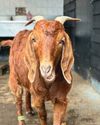
No space to spare- an influx of rescued goats
Matt Huggins makes an unusual appeal for new foster homes

Treats for Valentines Day
Henrietta Balcon looks at the traditions surrounding this celebration of love
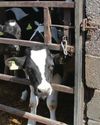
Are you legal to transport livestock?
Agricultural journalist, smallholder and editor of Ford & Fordson Tractors Magazine Jane Brooks, joins us for her regular look at the world of agricultural machinery.
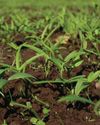
Soil Farmer of the Year competition launched on World Soil Day
Farmers can now enter the 2025 Soil Farmer of the Year competition, which will celebrate leadership in soil management as a tool to support the overall resilience of farm businesses. Entries close 5th March, 2025
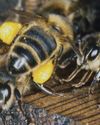
Getting kitted out for safety and comfort
Claire Waring considers the personal equipment you need when starting beekeeping.
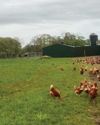
Laying hens doing a cracking job helping young farmer plough his own furrow
Joining Farmlay as a contract producer has helped a young Scottish farmer transform a modest acreage into a profitable concern.
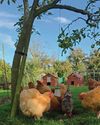
What Can Chickens Eat for Treats?
Most of us with chickens want to provide some treats as a supplement to their core food, either to encourage their trust or simply “just because”. Fiona & Hugh Osborne guide you through the options.
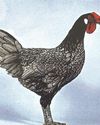
The Andalusian, a beautiful Mediterranean light breed which has some genetic quirks
This Mediterranean breed was known in the early 1800s, but the colours then were black or white.
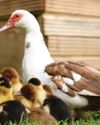
The waddle of wee webbed feet
Many ducks will soon come into lay but you need to plan ahead if you want to breed ducklings

Consider Cheshire for stunning countryside but also a county of culture
Sue Field writes our regular column about the best places for smallholder living